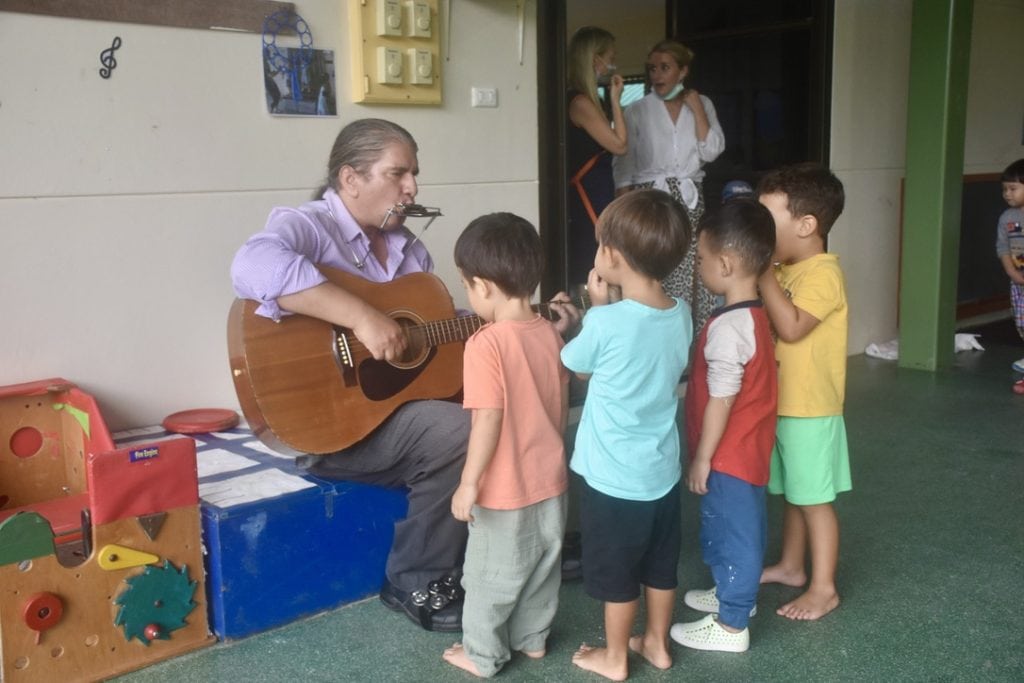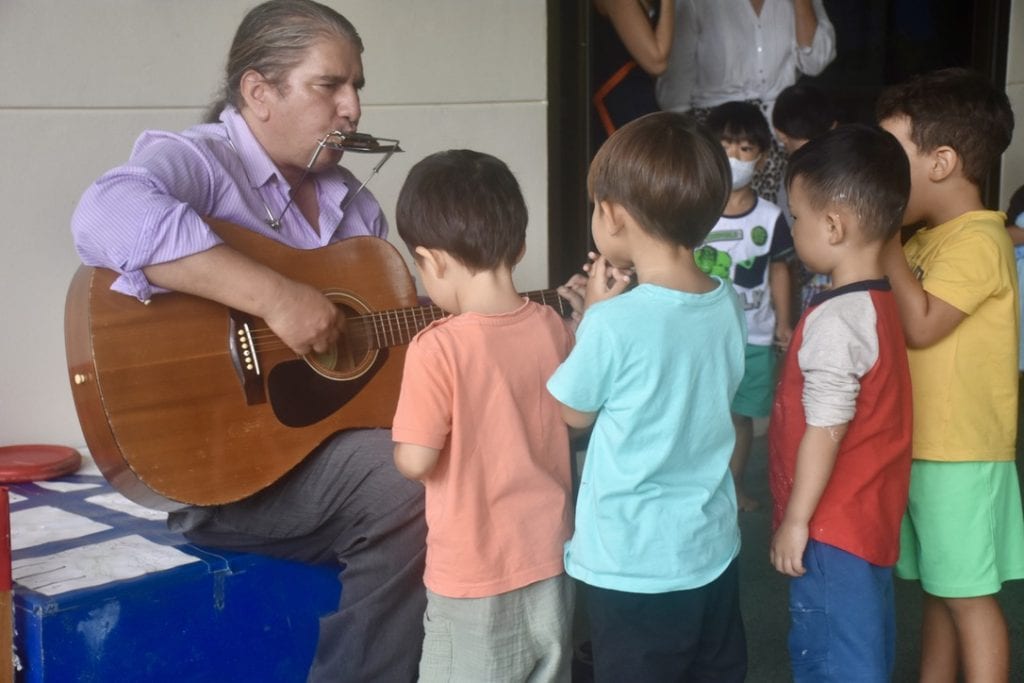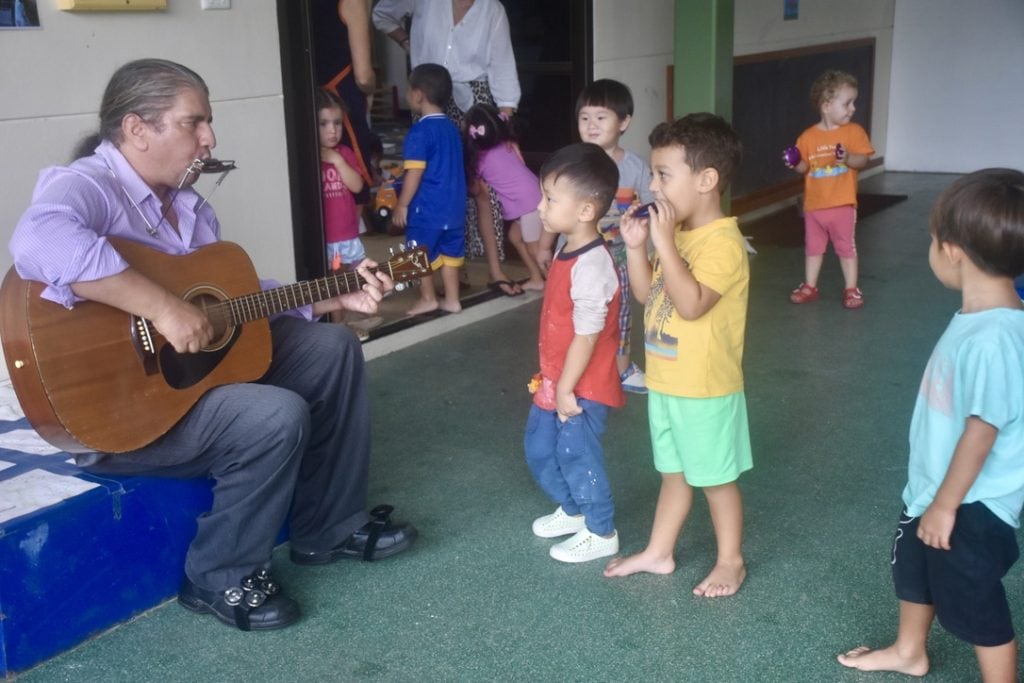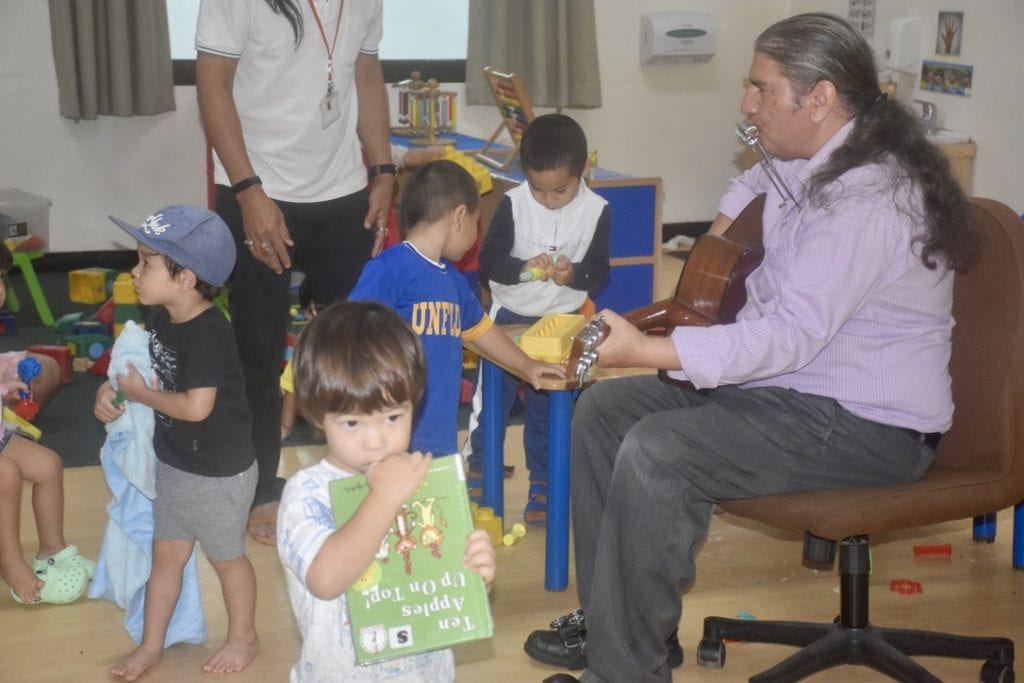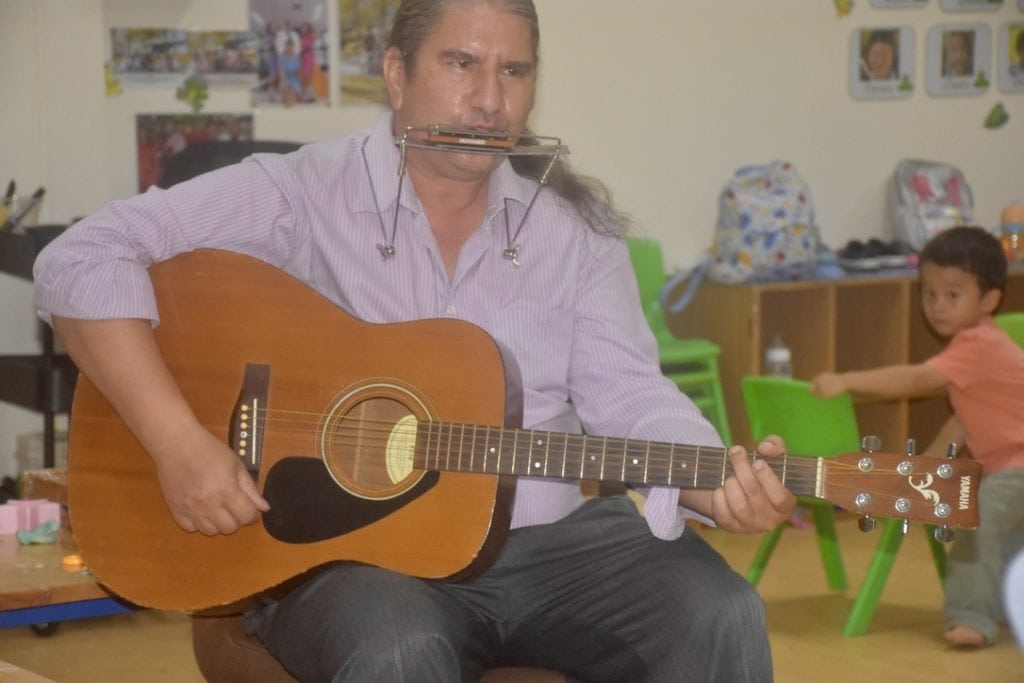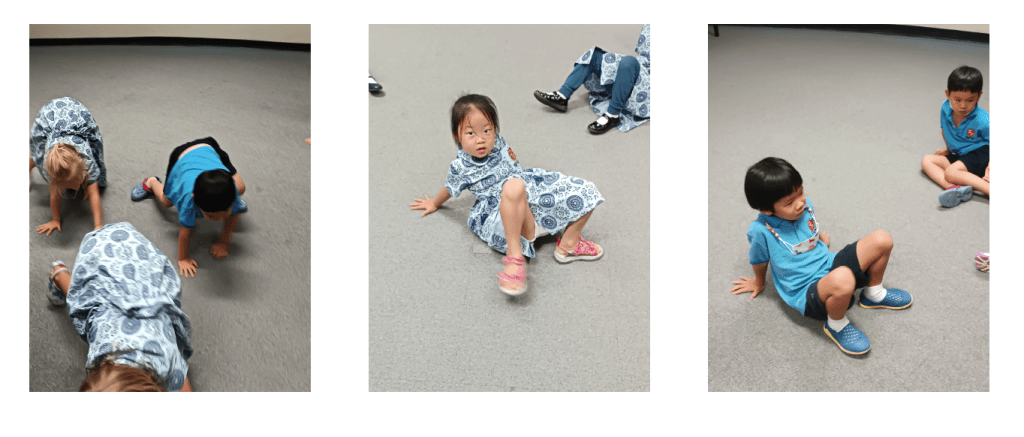Did you know music is one of the few activities that use both the logical and reactive sides of the brain? As such, this means that music helps build important brain connections, and the more connections we have, the faster we are able to think. Most importantly though, music is fun and if a child is having fun, their brain is open to learning.
At BISP, we provide many opportunities for our younger students to engage in music appreciation, movement and creativity. Children in our Early Years have opportunities to listen to music, sing and make music with their voices and instruments and move and respond to music creatively. Students are encouraged to express themselves while listening to music like the students in Little Ducks enjoying the percussions with Mr. Anand or Reception students moving around to music like crabs with Ms. Sam.
Music can also engage cognitive functions, such as planning, working memory, inhibition, and flexibility. These functions are known as executive functions (EF) and are important to learning across all curriculum areas. It helps them learn gross motor skills, learn vocabulary and numbers and learn about their own feelings and how these can be expressed creatively and kindly.
You can also hear more about the importance of music and performing arts with BISP’s Head of Performing Arts, Samantha Cockerill on our podcast: https://youtu.be/I1iuF53a6Iw
